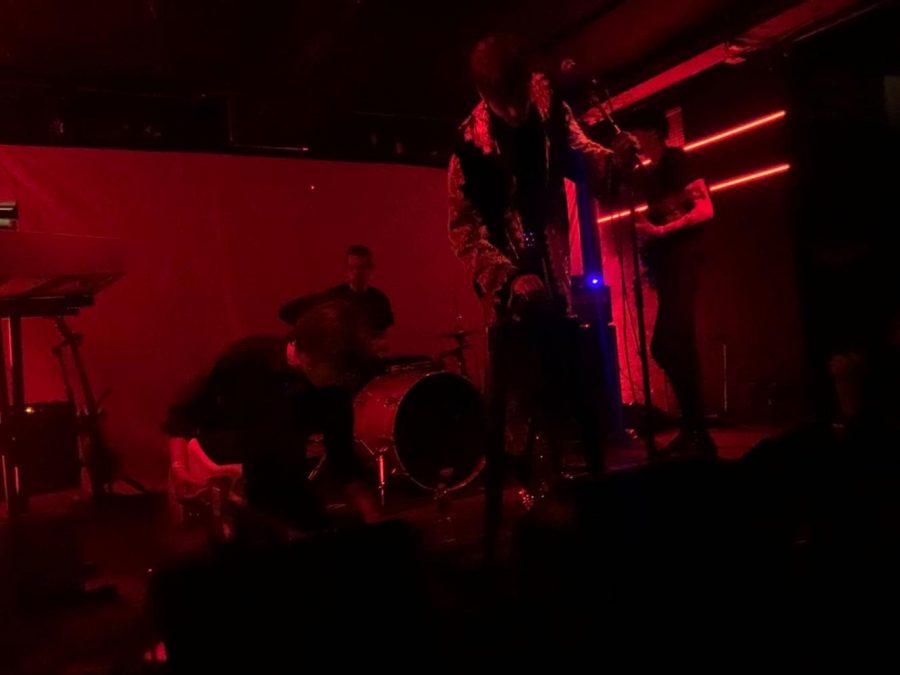Recent releases by artists rising in popularity who might’ve been considered fringe artists a mere three years ago like — Billie Eilish, Tame Impala, Rico Nasty, King Krule, Grimes and Charli XCX — point to a radical shift that’s beginning to warp how pop music sounds. The world’s air of distress calls for a change in the sounds of the zeitgeist. There’s something to be said about the rise of rage, anarchy and experimentation that seems to be catching more people’s attention than the repetitiveness of traditional pop.
Surveying a myriad of contemporary artists who are all manifesto-ing new musical movements despite displaying evident similarities in their sound points to a whole new generation of artists who are trying to capture what pop should sound like in our age. California art-punk duo The Garden calls for the expression of “Vada Vada,” “a term that represents total freedom of expression without boundaries or guidelines of any sort.” Meanwhile, Grimes’ urges Spotify to make “ethereal nu metal,” a combination of noisy electronic metal and super harmonic dream-pop, an official genre. Alice Longyu Gao, an NYU alumna, has also declared she has come up with a new sound she’s christened “violent pop.” The list goes on. Every rising artist is calling for a new, punk-driven musical aesthetic; a new wave of pop that obliterates our current understanding of it by replacing it with an ethos that reflects the mania of the times.
There’s an interesting comparison to be made between the parallels of musical shift that are currently going on and the transition that took place from the standard ’50s pop, to the experimentalism of the ’60s, to the radicalization at the hands of the punk movement in the ’70s and early ’80s. Looking at recent releases by Billie Eilish, who disrupts conventionality by using unconventional beats to highlight previously taboo subject matters, or SOPHIE and Arca, who’ve cultivated a beautifully anarchic style that reflects their experience as trans-artists, you can begin to see the primordially-important-countercultural manifesting itself in the music scene as an evolution of the punk movement.
The simultaneous releases of King Krule’s “Man Alive!” and Grimes’ “Miss Anthropocene” last week stands as the perfect sounds of pop in an age of contemporary madness. When the world seems to be coming to an end, gentrification doesn’t let you pay your rent anymore, social media alienates you from society further and you begin to feel more insignificant in the grand schemes of things, King Krule’s crooning is bound to feel more relatable than Selena Gomez’s unsubstantiated bubblegum melodies. The marketability of off-kilter talents like Tame Impala has become all the more pronounced as of late when you compare his act to that of previous Coachella headliners like Drake and the Red Hot Chili Peppers. This is a notion that similarly applies to Roddy Ricch’s “F-ck 12” anthem, “The Box,” overcoming all of Justin Bieber’s classically-produced pop love songs. Rising pop artists like Charli XCX and Rico Nasty, who according to Spotify garner millions of listeners per month, raise an interesting question as to whether they represent a new manifestation of pop and punk, or a new melding of the two.
We’ve reached a point where mere love songs and celebration of blissfulness ignorance just don’t do it anymore. Talking to a small selection representing a wide array of the NYU student body including the likes of students in the graduate program, Gallatin first-years, Clive students and aspiring journalists, a single sentiment seemed to be shared by all: people want to be possessed by music. Mindless muzak doesn’t cut it anymore — it holds no weight in a day and age where everything’s at stake, and that’s exactly why music that holds the power to overwhelm via its assertive lyrics, beats and message becomes so enticing. The age of vada vada, ethereal nu metal and violent pop is upon us, forgetting lackluster pop in favor of a new brand of exciting pop that’s heavily entrenched in the punk philosophy.
A version of this article appears in the Monday, March 1, 2020 print edition. Email Nicolas Pedrero-Setzer at [email protected].

























































































































































